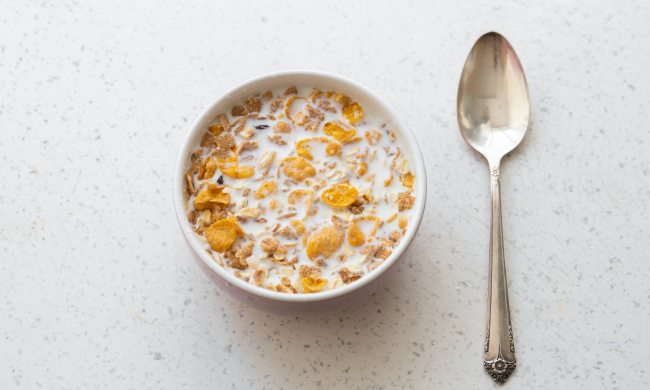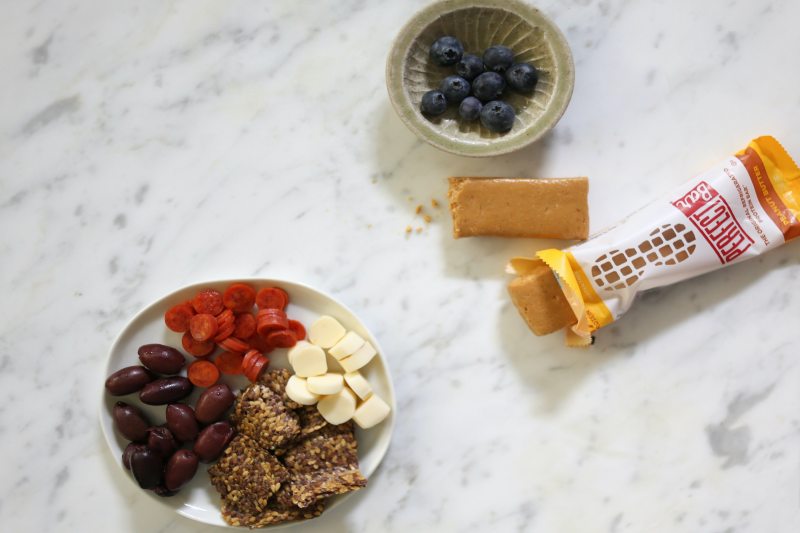
Whether you work out first thing in the morning or hit the gym after work, a portion of healthy pre-workout food is an important step in fueling your body for the exercise ahead. Not sure what to eat before a workout? A pre-workout snack should contain carbohydrates to top off your energy stores, protein to provide amino acids to your muscles, and fat to keep hunger at bay and blood sugar levels stable. Good pre-workout snacks leave you feeling energized and strong without feeling bloated, heavy, or running to the bathroom, so they should contain complex carbohydrates without an excessive amount of fiber, fat, or volume.
Rich foods or excess protein can cause heartburn and indigestion during exercise, so opt for light, balanced pre-workout snacks. Pre-workout snacks should ideally be consumed 30-90 minutes before exercise, depending on the type of exercise you’ll be doing, the planned intensity and duration, how hungry versus fueled you feel, and what you are eating for your pre-workout snack. The closer it is to your workout, the lighter and more carbohydrate-based the snack should be because protein and fat will slow digestion, potentially reducing the effectiveness of your pre-workout snack.
Ultimately, fueling yourself properly with the best pre-workout snacks before you hit the gym, head out on a run, or take a spin class will allow your body to have the nutrients and building blocks it needs to power your activity and maximize the gains from your workout. If you’re overly hungry, weak, and lacking the glycogen needed to push your body, your performance will be lower and you’ll make slower progress on your fitness goals. Therefore, keep reading for our recommendations for the best pre-workout snacks to step up your fueling game and take your workout gains to the next level.

The best pre-workout snacks to try
Cheese, fruit, and turkey
Cheese and fruit or fruit and a protein like chicken breast, turkey, tuna, tofu, or tempeh provide a balance of sustained energy and quick energy before you work out. You can even make a small wrap with a whole-grain tortilla, cheese, a few veggies, and your favorite protein. Just make sure to keep the portion small or eat it 90 minutes or so before you hit the gym to give your stomach ample time to digest.
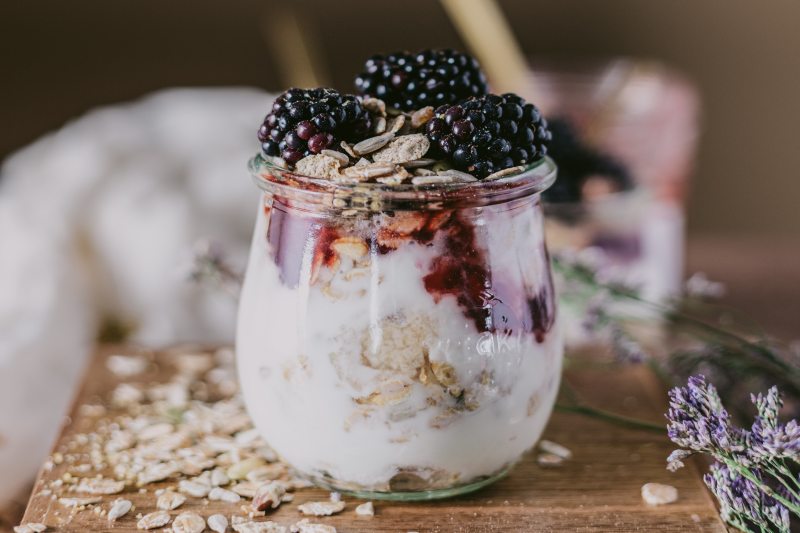
Oats
Oats are highly versatile and make for a great pre-workout snack due to the complex carbohydrates, which provide sustained energy without inducing a blood sugar crash. Oats also contain prebiotics, a special type of fiber that feeds the beneficial bacteria in your gut and has been shown to lower cholesterol. Try overnight oats with nut milk, fruit, chia seeds, and berries, or oatmeal with fruit and nuts if you’re hitting the gym in the morning. You may also enjoy steel-cut oatmeal, low-sugar granola, or other healthy breakfast cereals.

Trail mix
Trail mix with dried fruit, nuts, and seeds is filling without being heavy. Nuts and seeds are packed with nutrients like fiber, healthy fats, zinc, iron, and vitamin E. Dried fruits, especially dried apricots, are an excellent source of iron, which is an essential mineral necessary to transport oxygen around your body. You can also throw in some dark chocolate, which adds decadence and many antioxidants.
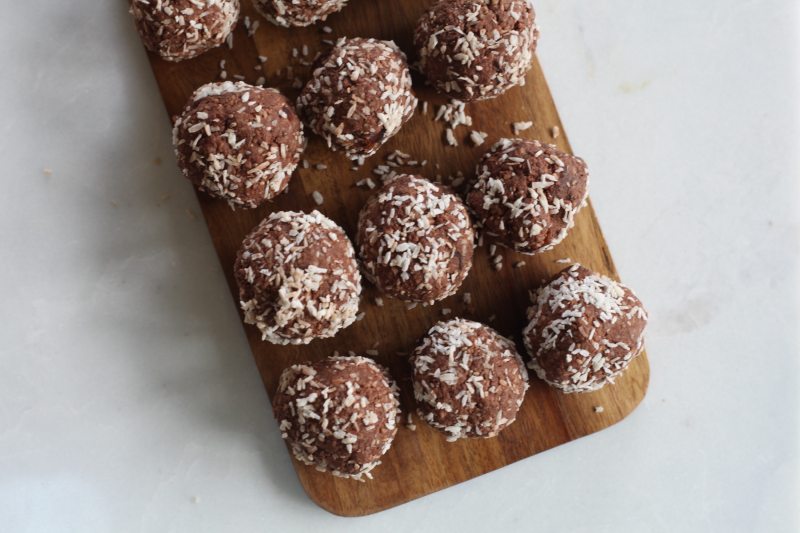
Homemade protein balls
Homemade protein balls are easily made by combining rolled oats, nut butter, protein powder, dried fruit, coconut, and seeds. You can flavor them with different spices like ginger, cinnamon, or even cocoa powder. They provide sustained energy and contain fewer preservatives and processed ingredients than store-bought protein bars.
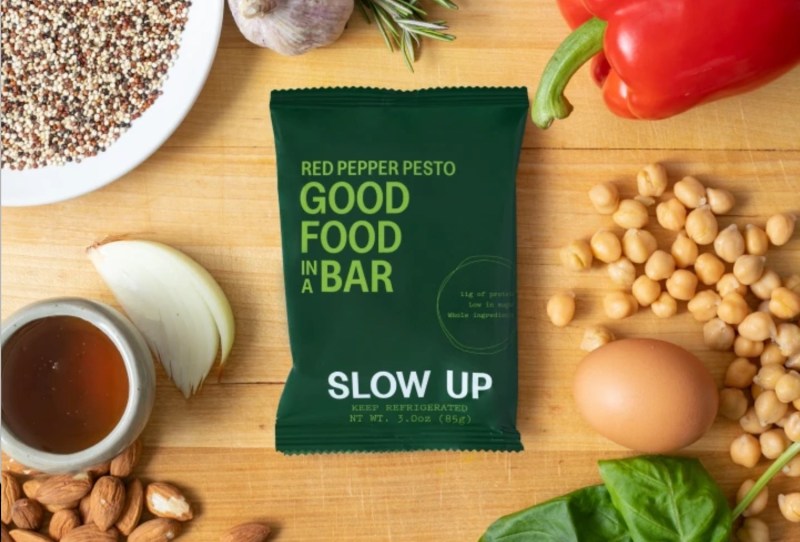
Protein bars
Protein bars and energy bars make for convenient, on-the-go snacks before a workout. They are often specifically designed to provide the ideal ratio of macronutrients to fuel your body before exercise. Look for low-sugar bars with whole, natural ingredients, and no artificial sweeteners or sugar alcohols, as they cause digestive distress. We like Slow Up bars, a new line of nutritious bars that are reinventing traditional energy bars with real ingredients and innovative flavors, some of which are savory. The bars have to be refrigerated until you plan to eat them (though they can be out for several hours), a sign of their freshness and lack of processing. Flavors include Sesame Ginger, Red Pepper Pesto, and Poblano Black Bean, along with some sweet options as well.
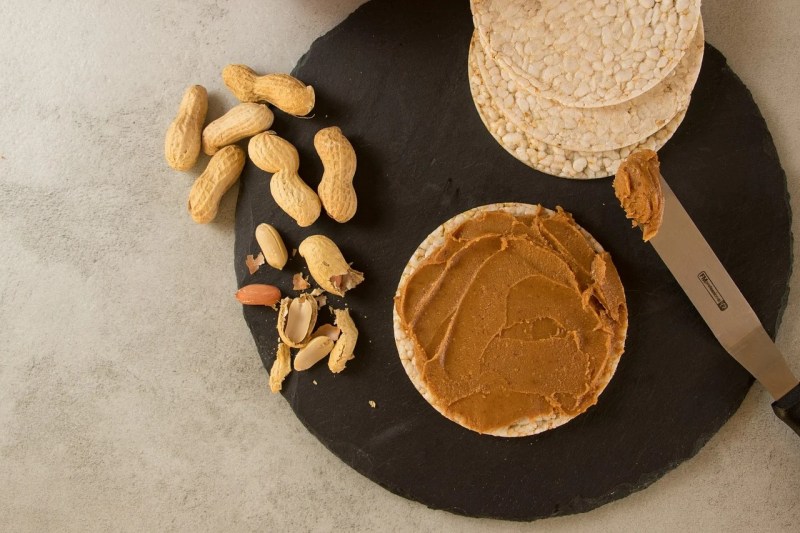
Rice cakes
Rice cakes don’t necessarily provide tons of lasting energy, but they are exceptionally light and easy to digest. This can be ideal before exercising, particularly for those with sensitive stomachs or who plan to go running or take on another vigorous workout. Top them with some fat and protein to provide satiety. For example, nut butter, tuna fish, turkey breast, hummus, or ricotta cheese with sliced fruit make for a tasty, balanced pre-workout snack.
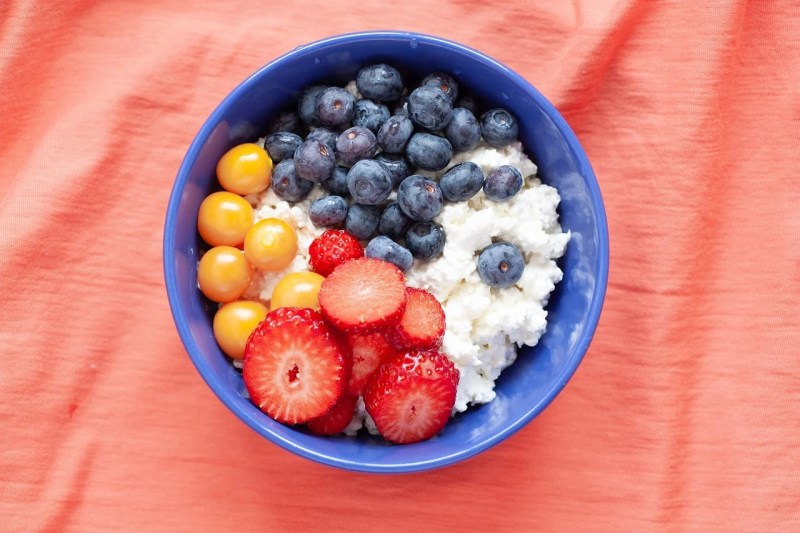
Cottage cheese or yogurt
Cottage cheese or Greek yogurt is high in protein and can provide sustained energy for your workout, especially when paired with some fruit, or a little cereal, granola, or nuts. If you are sensitive to dairy, consider an alternative milk yogurt, such as soy or hemp.

Nut butter and fruit
Whether you love peanut butter and banana, apple and almond butter, or sliced pear and sunflower seed butter, the combination of nut butter and fruit makes for an excellent pre-workout snack because the combination contains an ideal ratio of nutrients to fuel your body for physical activity. Bananas are packed with potassium, an electrolyte that may help prevent muscle cramps while exercising. If you prefer something a little more savory, you can also enjoy carrot sticks, celery, or other crudités instead. Sweet potatoes or other root vegetables also make a good vehicle for almond butter or peanut butter and provide complex carbohydrates and fiber for sustained energy.
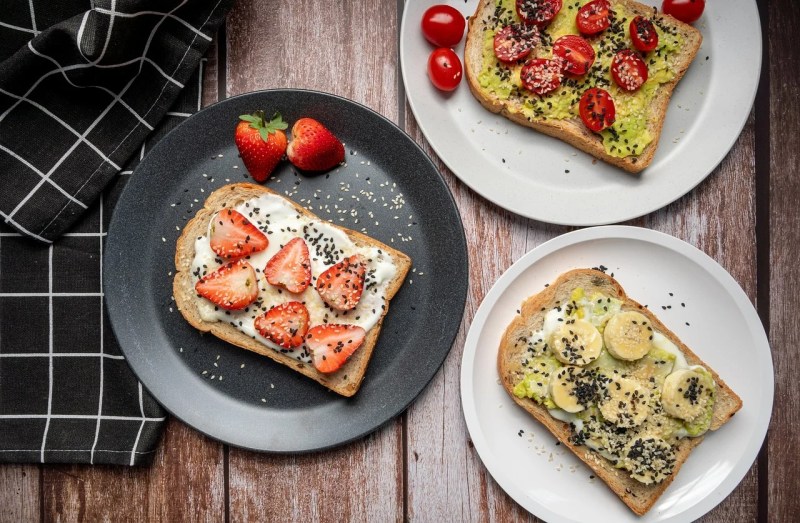
Whole grain toast
Whole grain bread or toast provides complex carbohydrates, fiber, and vitamins, and can make for a versatile pre-workout snack. Like rice cakes, it can be topped with anything from nut butters or hummus to avocados, eggs, turkey, tempeh, or cheese.

Whole grain crackers
Whole grain crackers can be enjoyed on the go, with string cheese, a few nuts, or a couple of pieces of chicken breast, turkey breast, or leftover cooked tofu strips. Crackers with seeds will provide additional nutrients like zinc and omega-3 fatty acids, which can reduce inflammation in the body.
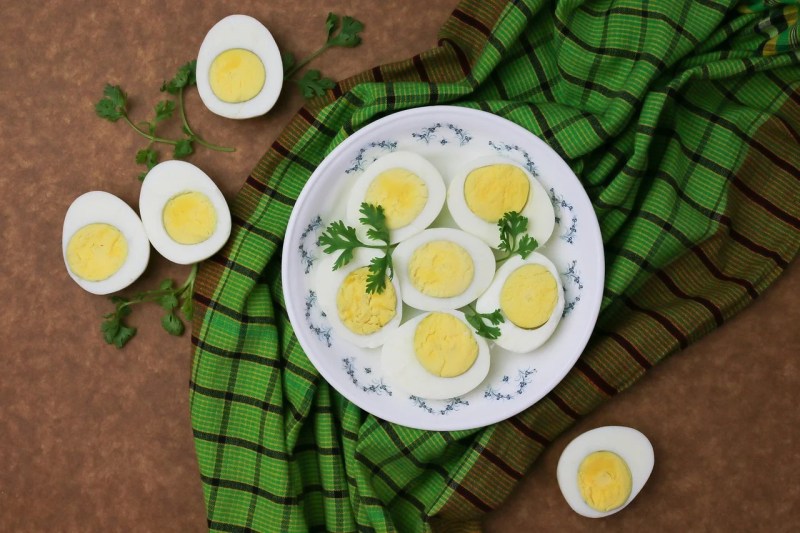
Hard-boiled eggs
Hard-boiled eggs offer a complete source of protein with all the essential amino acids your body needs, as well as iron, B vitamins, and vitamins D, K, and A. For an ideal pre-workout snack, pair an egg with a piece of fruit, like an orange or a handful of berries, to boost the carbohydrate content and the vitamin C.
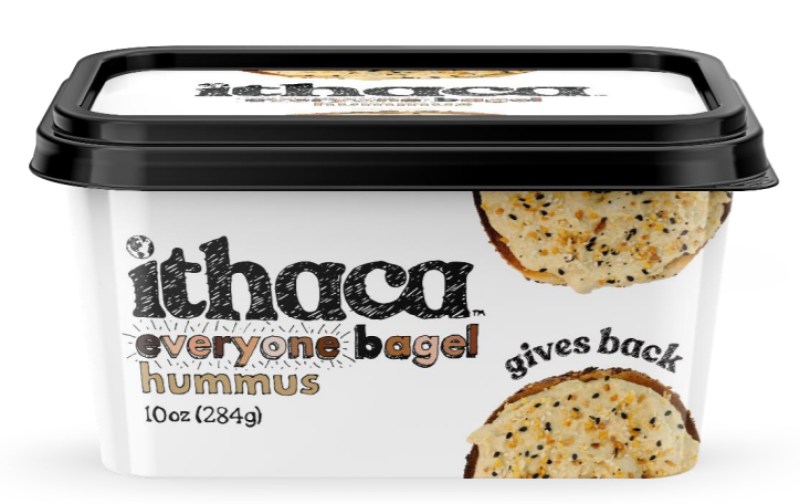
Hummus
Made from nutritious garbanzo beans, a type of legume, hummus can be a perfect pre-workout snack, as it’s full of protein, a little fat, and complex carbohydrates. There are tons of flavors and varieties of hummus these days—even sweet ones—to suit all sorts of palates. We love Ithaca’s Everyone Bagel Hummus, which has the iconic everything bagel seasoning in a delicious protein-packed hummus perfect for dipping or spreading on crackers, whole-grain bread, carrots, pepper strips, or other healthy vegetables.
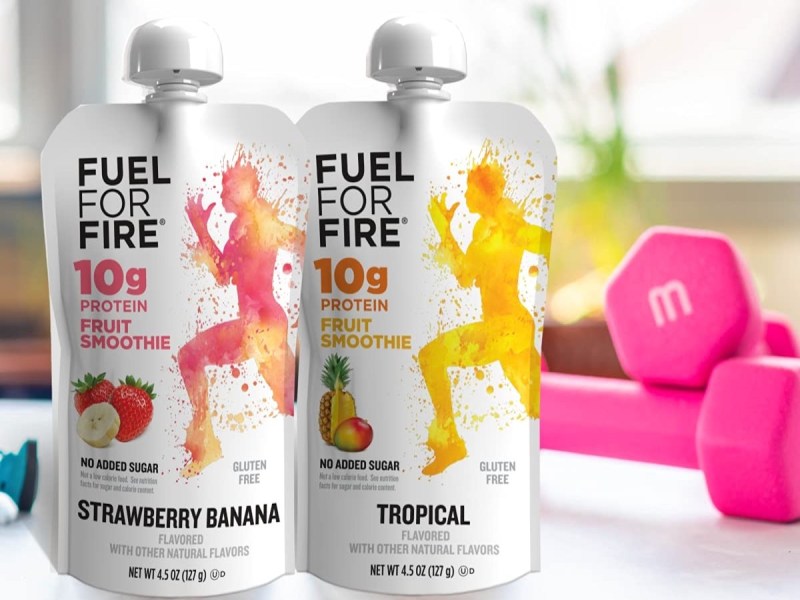
Smoothies or protein shakes
Smoothies or protein shakes have the nutrient ratios to fuel a hard workout and prime your muscles for a hard effort. Make your own with fresh fruit, leafy greens, and a protein powder, or buy a convenient, to-go option like Fuel For Fire portable protein-packed smoothies, which come in delicious flavors like Chocolate Strawberry. There is a line of whey-protein-based smoothies as well as one made entirely with plant-based protein.

Homemade pre-workout smoothie recipe
If you’ve got some basic ingredients and a blender, you can quickly make a delicious and protein-packed pre-workout smoothie that you’ll actually want to drink. This recipe from Nutrition in the Kitch gets its sweetness from the fruit as well as a touch of maple syrup. This is best if you have it about 30 minutes before a regular workout; if you’re planning a longer workout of an hour or more, the recipe suggests adding 1/4 cup whole grain rolled oats for a carbohydrate burst so you’ll have more energy during the workout.
Ingredients:
- 1 banana
- 1/2 cup frozen blueberries
- 1 teaspoon maple syrup
- 1 teaspoon cinnamon
- Juice from 1/2 lemon
- 2 scoops of the protein powder of your choice
- 1/2 cup milk (you can also use unsweetened almond or oat milk)
Method:
- Peel the banana.
- Add all of the ingredients to a blender.
- Blend until smooth and serve.


